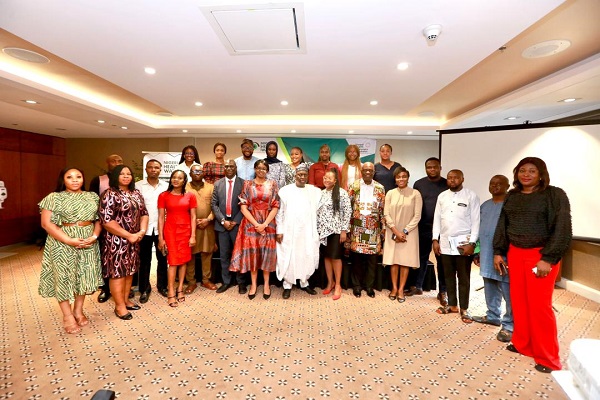
Chairman of the Senate Committee on Health, Senator Ibrahim Oloriegbe has announced that the proposed public health bills have been harmonised and are awaiting assent from President Muhammadu Buhari.
The 9th Assembly is committed to pushing for approval of the bills before the end of their tenure. Oloriegbe emphasised the importance of the bills in establishing a comprehensive legal framework for managing public health emergencies of national and international concern during a media roundtable with legislators in Abuja on Tuesday.
The Nigerian Senate passed the Bill in January 2022 to revoke the 96-year-old Quarantine Act and establish a legal and administrative framework for managing public health emergencies of national and international concern. The “Bill for an Act to Provide for an Effective National Framework for the Control of Outbreaks of Infectious Diseases and Other Events Endangering Public Health and Requiring Public Health Emergency Measures and for other Related Matters” was initially presented to the Senate in 2020. The bill aimed to equip the Nigerian government with the legal tools to respond effectively to health crises.
Oloriegbe emphasized that the COVID-19 pandemic is not just a health problem but also an economic problem that has impacted the health and economy of the country. He stated that the importance of strengthening the country’s health security cannot be overemphasised as the COVID-19 pandemic would not be the last outbreak. The chairman of the Senate Committee on Health also highlighted the contributions of the 9th National Assembly in strengthening Nigeria’s health security by increasing visibility and financing allocation for health security in Nigeria.
The chairman of the House Committee on Health Services, Hon. Tanko Sununu, stressed the critical role played by the National Assembly in combating infectious disease outbreaks in the country. He added that COVID-19 has demonstrated what previous outbreaks and epidemics had already shown: National pandemic preparedness and response depend on strong local and national capacities. Sununu urged the media to collaborate with the health committees at the National Assembly to foster ways to enhance the implementation of the new public health bills in the country.
Dr. Emmanuel Alhassan of the Global Health Advocacy Incubator applauded the 9th Assembly for engaging actively with various stakeholders to improve the policy and legislative landscape in the country. He emphasised that the COVID-19 pandemic has highlighted the critical importance of robust and sustained funding for public health emergencies. Through advocacy efforts, the country has achieved notable successes in securing increased funding for Epidemics Preparedness and Response, as well as improvements in the country’s epidemic preparedness and response capabilities.
The managing director of Nigeria Health Watch, Mrs. Vivianne Ihekweazu stated that the media roundtable provided a unique opportunity for experts to share their views on the proposed public health bills. She added that the bills have significant implications for public health in the country and must be thoroughly examined and discussed by key stakeholders in the health sector. The bills include the Public Health Emergency Bill, the Amendment of the National Health Act and the Port Health Authority Bill, aimed at enhancing the country’s response to public health emergencies.
In conclusion, the proposed public health bills are critical to establishing a comprehensive legal framework for managing public health emergencies in Nigeria. The 9th Assembly has played a significant role in strengthening Nigeria’s health security, and there is a need for commitment from the 36 states of the federation and the FCT to ensure effective governance, use of financing and other resources, and rigorous accountability. The media must collaborate with the health committees at the National Assembly to foster ways to enhance the implementation of the new public health bills in the country. By accelerating efforts to pass and implement the bills, the government would be demonstrating its commitment to protecting the health and well-being of Nigerians and ensuring that the country is better equipped to respond to any future public health emergencies.

